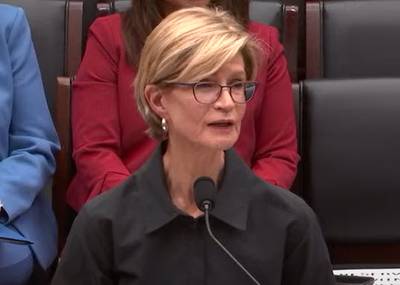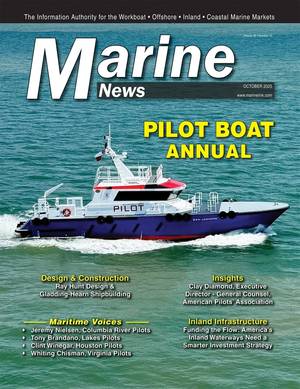Foreign Flags Under Investigation by FMC
Coast Guard and Maritime Transportation Subcommittee Chairman Mike Ezell (R-MS) delivered his opening remarks at the July 22 hearing on the Federal Maritime Commission (FMC) budget request highlighting his interest in the impact of flags of convenience.
The FMC is an independent agency responsible for the regulation of ocean-borne transportation in the foreign commerce of the United States.
Earlier this year, the FMC announced an investigation into vessel flagging laws, regulations, and practices of foreign countries.
“I fear these so-called flags of convenience create unfavorable shipping conditions in the foreign trade of the United States,” said Ezell. “Many vessels conducting international trade fly flags that differ from the nation where the ownership is based. The FMC is examining whether certain flag states may have standards that provide vessels with lower costs and oversight at the expense of reliability and safety.
“In line with President Trump’s executive order to restore American maritime dominance, we are working to bolster our domestic maritime capabilities, which are paramount to both the security and economic growth of our nation. I look forward to hearing from our witness on how the FMC plans to make United States maritime great again.”
Commissioner of the FMC, Rebecca F. Dye, spoke at the hearing about its investigation into flags of convenience, saying the Commission initiated an investigation of the flagging rules and practices of foreign governments in May 2025. The 90-day public comment period will close on August 20, 2025.
“Initial indications are that vessel registration practices of certain foreign countries, so-called flags of convenience, are creating unfavorable shipping conditions in the foreign trade of the United States. These flags enable unsafe vessels to operate, and further enable shadow fleet activity and the evasion of sanctions,” she said.
“There has been a race to the bottom—a situation where flag states compete by lowering standards and easing compliance requirements, lowering the cost of flagging vessels beyond a point where the efficiency, reliability, and safety of the vessels used in the ocean shipping supply chain can be assured. The use of these flags of convenience endangers the U.S. ocean shipping supply chain.”
The Commission will review all filed comments and determine next steps later this year.
“Unfortunately, not all foreign ship registries share a commitment with the United States to ocean shipping integrity and accountability. This lack of ship registry accountability not only disadvantages U.S.-flag shipping, but also presents a problem in addressing smuggling operations, sanctions evasion, disguised ownership, and other irregularities,” said Dye.
“Aggressively investigating and enforcing the law against foreign conduct that disadvantages U.S.-flag interests is an incentive to registering ships under the United States flag, as the United States is prepared to intervene legally on behalf of U.S.-flag vessels.
“Shipowners have a multitude of options to register their vessels, and the ability of the Federal Maritime Commission to take direct action to enforce the law against discriminatory behavior of other foreign governments or foreign-flag carriers, with the involvement of the President, Federal agencies, and Federal courts, is a unique benefit to U.S.-flagged vessels.”













